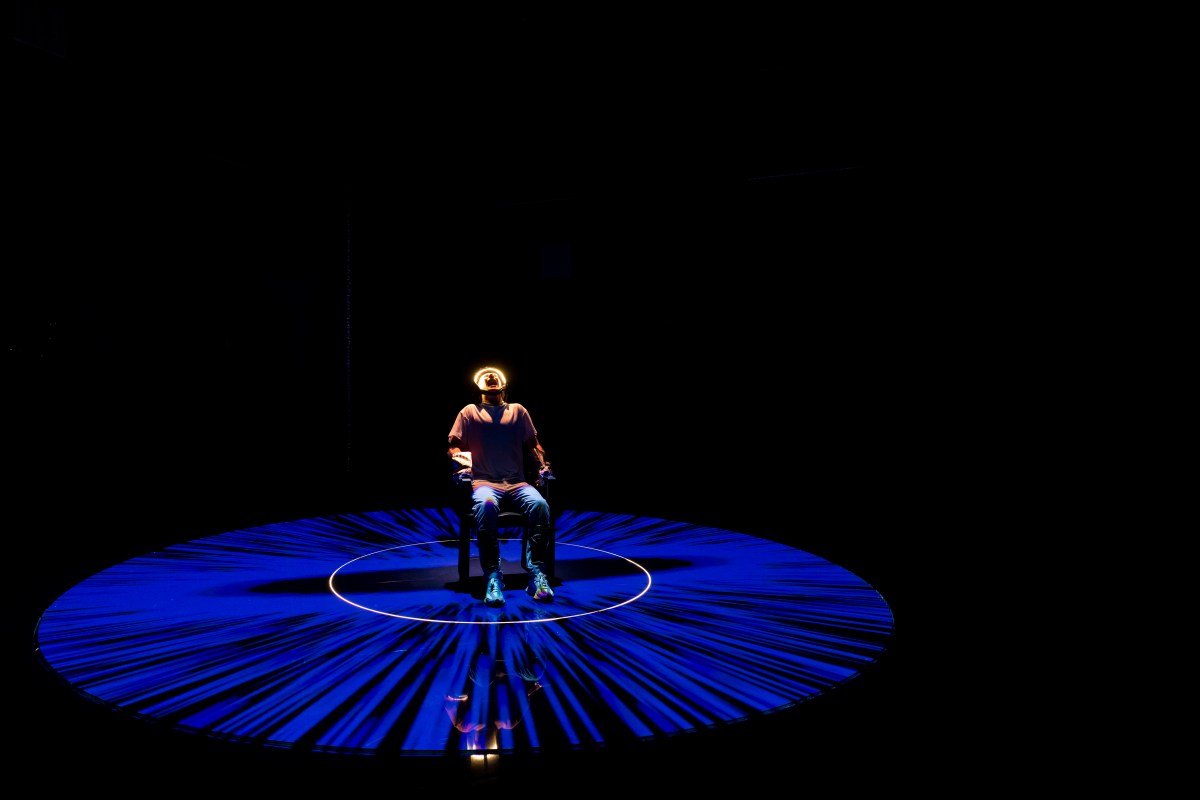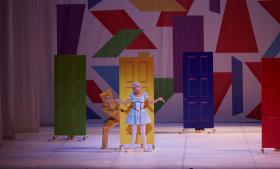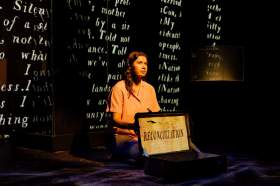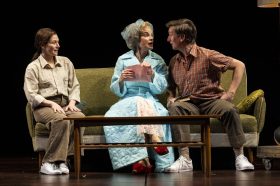Ryan Enniss’ play Drizzle Boy addresses head-on many issues faced by neurodiverse people – those who are characterised by autistic or other neurologically atypical patterns of thought or behaviour. At just 25, and writing from his personal perspective, Enniss seeks both to examine and explain his own experiences growing up in Tasmania.
Drizzle Boy is very much a coming-of-age story, along the lines of many recent plays and television programs that have examined issues faced by LGBTQI+ young people. Society’s attempts to change who people are, or wish to be, remains an ever-present issue sometimes with legal ramifications. In the case of Enniss, and his character of Drizzle Boy (DB), we see parents who don’t understand him and a medical and societal world that wants to ‘make him better’ as if autism is a disease or at least something that can be cured. Enniss sets out to put the record straight and, to a great extent, he succeeds it doing just that through a play offering hard facts, as well as humour and pathos.
Director Daniel Evans has crafted the work carefully, with attention to detail across the many short scenes that move swiftly across time zones and locations. He invests the character of DB (exquisitely played by Daniel R Nixon) with great empathy and sensitivity, allowing DB’s strength of character and his desire to succeed in life shine through.
Evans directs a fast paced and action-filled play, sometimes making it difficult to follow all the nuances and the many throwaway lines from the diverse characters who impinge on DB’s life. Evans concentrates his energies on bringing out the humour from his characters, who are sometimes exaggerated to the point of caricature.
Christine Smith’s set, a beautiful dark-blue mirrored disc with three concentric circles, ably represents DB’s world and his love of space and the universe. It becomes a place of both refuge and where his imagination can take flight, and is very well used. Video designer, Nevin Howell, brings the circles to life with mirrored patterns and changing colours. They are also used to convey space data about planets and stars, as well announcing scenes and the passage of time.
Matt Scott’s lighting is extremely effective in complementing the video projections, delineating the scenes and characters, and responding to DB’s rules about light and colour. Sound designer Guy Webster has composed various sonic palettes, working in tune with Scott’s lighting, as well as creating cosmic and imaginative soundscapes.
Christine Smith was able to have a field day with over-the-top costumes, particularly those of the imaginary characters such as the cosmonaut, Valentina Tereshkova, and the Devil, Baphomet. Additionally, the physics teacher and both the father’s and mother’s costumes loan themselves more to a satirical revue. Perhaps Enniss remembers them that way, but they distract from the overall narrative and are more sad than funny.
Nixon gives a finely nuanced and well considered performance, which shows both passion and frustration in turn. As a neurodivergent actor, he clearly has a firm grasp on the character and strong empathy with him. He understands the disappointment in dealing with his parents and their views. He is particularly good in the scenes with Juliet, whom he likes, but has difficulty in communicating with. Painful to watch, these scenes are some of the best in the play as they are authentic and truthful.
Naomi Price and Kevin Spink play several different roles and spend much time changing costumes. They are both excellent, even if exaggerated, as DB’s parents, agonising over how best to treat their son and just wanting him to be ‘normal.’ Even when DB patiently explains that their normal is not the same as his and he sees things differently, they fail to understand.
Spink plays the satirically-named Hans Asperger, the German speaking physics teacher, for laughs, making him a cartoon character. While Price’s Russian cosmonaut, in bright red space suit with high heels and cigarette, is equally caricatured. Playing DB’s student friend, Juliet, Price gives an honest performance, which is the best of the evening. She and DB are also excellent in a dance routine to a Dirty Dancing soundtrack.
Drizzle Boy is the recipient of the Queensland Premier’s Drama Award for 2022-23, which offers the opportunity for a brand new Australian play to be staged as part of the state theatre company’s main annual season. This award is a terrific way to encourage new Australian writing for the theatre and encourage playwrights like Enniss.
Read: Ballet review: Don Quixote, Arts Centre Melbourne
Drizzle Boy is a play ultimately about hope and following your dreams, and it is certainly a worthy winner of this award. Queensland Theatre similarly deserves an accolade for bringing works of this nature to the stage.
Drizzle Boy by Ryan Enniss
Bille Brown Theatre, Queensland Theatre, Brisbane
Director: Daniel Evans
Set and Costume Designer: Christine Smith
Lighting Designer: Matt Scott
Composer/Sound Designer: Guy Webster
Video Designer: Nevin Howell
Dramaturg: Saffron Benner
Choreography: Dan Venz
Cast: Daniel R Nixon, Naomi Price, Kevin Spink,
Drizzle Boy will be performed until 31 March 2023





